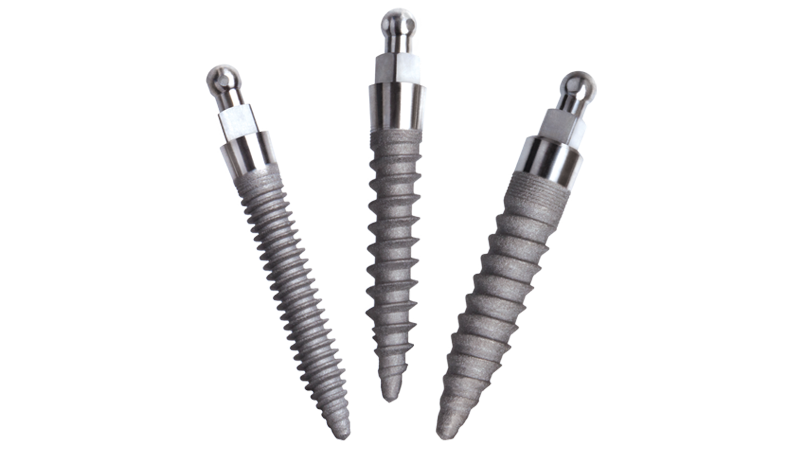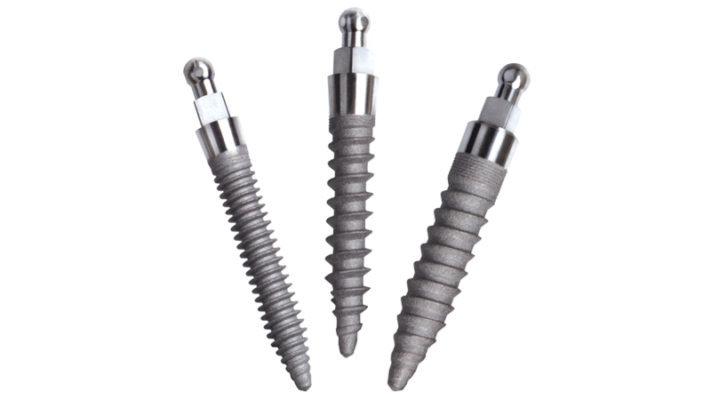Have you ever found yourself considering dental implants, only to stop short when the word “surgery” came up? You may have been open to the idea at first. Perhaps you even envisioned what life could be like with a stronger bite or a more complete smile. But then the conversation shifted. The tone changed. And suddenly, the idea felt heavier. The word surgery carries a certain charge. It makes people sit up a little straighter, guard their questions, or go quiet altogether. Not out of disinterest, but because it invites a different kind of decision-making. For many people, that is where hesitation sets in. But what if we told you the mini dental implant process is not as invasive or intense as its traditional counterpart? At J. Michael Williams, DDS, we provide a modern solution that offers real, lasting results with minimal disruption to your daily life.
How Does a Mini Implant Compare To a Standard Dental Implant?
Both mini and traditional implants serve the same essential purpose: to support a dental restoration and restore function to your bite. However, their design, size, and surgical approach differ in important ways.
| Feature | Mini Implant | Traditional Implant |
|---|---|---|
| Diameter | Less than 3 mm in diameter | 5 mm in diameter (on average) |
| Structure | One-piece implant (plus restoration) | Two pieces (plus restoration) |
| Placement Technique | Minimally invasive; no cutting or stitches | More invasive with incisions and sutures |
Understanding the Mini Implant Placement Process
Because a mini implant is smaller and constructed as a single piece, we can place it using a simpler, less invasive technique. This reduces surgical impact and creates a smoother experience from start to finish.
- Assessment and planning: We start by taking X-rays to evaluate your bone structure. This allows us to plan the exact location for each implant. Your treatment plan is tailored to your needs, available bone, and the number of implants required.
- Local anesthesia: We use local anesthesia to numb the gums and the surrounding area of the jaw. This ensures you stay comfortable throughout the procedure without the need for general sedation.
- Implant placement: We make a small opening through the gum and into the bone. The mini implant, which is a narrow titanium post, is gently inserted and tightened into place. In many cases, we can place multiple implants during a single visit.
- Attachment of replacement teeth: Replacement teeth, such as crowns or dentures, are secured to the mini implants. In some cases, this happens immediately. Since mini implants are smaller in diameter, we place them without cutting and lifting the gum tissue like we would for traditional implants.
Mini dental implants require no stitches because the gum tissue remains intact. The smaller size and precise placement reduce trauma to both bone and soft tissue. Patients often experience less swelling, soreness, and bleeding. Healing tends to be much quicker. Most people recover in a few days to a couple of weeks, while traditional implant healing can take several months.
Who Benefits Most From Mini Dental Implants?
Mini dental implants are an excellent option for patients who feel uneasy about surgery or recovery. If you live with dental anxiety or worry about invasive procedures, this treatment can offer a simpler, less stressful path to restored function and confidence.
But it’s not just about easing nerves. In fact, some of the people who stand to gain the most from dental implants often face the biggest barriers to treatment. Whether due to age, bone loss, or overall health, these patients are frequently told they are not ideal candidates for traditional implant surgery.
A Closer Look: Frail and Medically Fragile Patients
Experience a Gentler Path to a Stronger Smile
Explore a treatment option that works with your needs, not against them. At J. Michael Williams, DDS, we use mini dental implants to deliver strong, stable results with less surgical impact and faster recovery. This approach supports patients who may not qualify for traditional implants, including those with health concerns or significant bone loss. Schedule a free implant consultation to learn how mini dental implants can help you eat, speak, and live more comfortably again.
Join our online community on Facebook and Instagram for helpful insights, office news, and educational resources.


